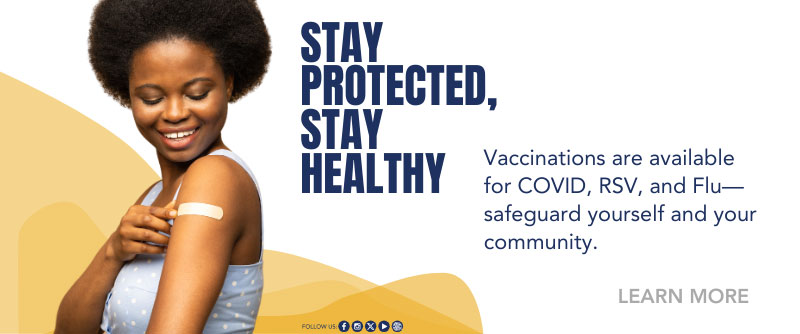
Severe weather readiness should begin long before the event occurs. Early preparation can prevent illness and injury, and save lives.
On This Page
- Family and personal preparation
- Power and cooling loss
- Food and drinking water
- Medical and pets
- Carbon monoxide
- Cleanup after a storm
 Plan Ahead
Plan Ahead
- Establish an assembly point where the family meets in the event of a hurricane when the family is not together at home.
- Give your relatives and friends the name of a contact person who will know where you are and how you are doing.
- Instruct family members about how to shut off the gas, water and electric mains.
- Know the location of your important papers, such as insurance policies, wills, licenses, stocks.
- Inform local authorities about any special needs, for example, elderly or bedridden people or anyone with a disability.
Assemble a disaster supply kit and ensure that you have water and food supplies for three days.
More information →
 Medical Preparation
Medical Preparation
If you have important prescriptions or a chronic illness such as heart or kidney disease, you'll need to take extra steps for safe care in an emergency.
 Pets and Evacuation
Pets and Evacuation
They're part of your family, too! The Mississippi Board of Animal Health has a guide to ensuring your pet's health and safety if disasters threaten your home.
 Power and Cooling Loss
Power and Cooling Loss
Power outages after a hurricane can mean an extended time without air conditioning. Be prepared to seek a local general population shelter/cooling center until power is restored.
 Food Safety
Food Safety
If flooding occurs:
- Discard all fresh food including fruits, vegetables and other produce if they have been under water or exposed to flood waters.
- Throw away all screw cap or crimp cap containers exposed to flood waters.
- Disinfect canned foods if they are undamaged. Remove the labels and rinse cans in a bleach solution. Use ¼ cup of bleach in one gallon of water; re-label the cans including expiration date and type of food. Assume that home-canned food is unsafe.
If power/refrigeration is lost:
- Discard any cold or cool food that has warmed. Food that is still frozen or cold (45 degrees Fahrenheit or less) is safe to prepare.
- Canned food should not be eaten if there is bulging or break on the can.
 Floods and Drinking Water Safety
Floods and Drinking Water Safety
Even a brief loss of water pressure means that your water supply could become contaminated by groundwater. Flood water and storm surges can also contaminate water supplies.
Know Your Water Safety
Boil-water notices: Familiarize yourself with how your local water supplier communicates boil-water notices after a storm or hurricane. There may be several alternatives to be aware of, especially if power is unavailable.
Loss of water pressure: If you receive an official boil-water or water safety notice, or if you notice an interruption significant drop in pressure in your water service, follow the steps below before you drink water or use if for cooking.
Water Disinfection
- Vigorously boil water for at least a full minute before using.
- Or disinfect with two drops of unscented chlorine bleach for each quart of clear water, or four drops of bleach for each quart of muddy or dirty water. Let the water stand at least 30 minutes before using.
Flood Water Safety
- Basic hygiene is very important during this emergency period. Always wash your hands with soap and water that has been boiled or disinfected before eating, after toilet use, after participating in cleanup activities and after handling articles contaminated by floodwater or sewage.
- Stay out of flood waters. Flood water after a hurricane or storm can contain fecal matter from sewage systems, and agricultural and industrial waste. If you have open cuts or sores exposed to the floodwater, keep them as clean as possible by washing them with soap and clean water. Apply antibiotic ointment to reduce the risk of infection. If a wound or sore develops redness, swelling or drainage, see a physician.
- Do not allow children to play with toys that have been in floodwater until the toys have been disinfected. Use ¼ cup of bleach in one gallon of water.
- Do not prepare baby formula in water you think may be unsafe. Boil and cool the water first, or use canned baby formula.
 Carbon Monoxide
Carbon Monoxide
Carbon monoxide is an invisible, odorless, tasteless gas, and is highly poisonous. Take the following precautions to help prevent carbon monoxide poisoning:
- Only use grills or generators outdoors. Do not use grills or generators inside a house, garage or any enclosed space.
- Symptoms of CO poisoning may include fatigue, weakness, chest pains for those with heart disease, shortness of breath upon exertion, nausea, vomiting, headaches, confusion, lack of coordination, impaired vision, loss of consciousness, and in severe cases, death.
- If you suspect you are experiencing any symptoms of CO poisoning, open doors and windows, turn off gas appliances and go outside. In cases of severe CO poisoning, call 911 emergency services or the Mississippi Poison Control Center at 1-800-222-1222.
 MEMA Hurricane Guide
MEMA Hurricane Guide
The Mississippi Emergency Management Agency has assembled a comprehensive hurricane guide, including maps, evacuation information, and important contacts.
 Cleanup After a Storm
Cleanup After a Storm
Storm debris poses its own risks to safety and health. Protect yourself during your cleanup with this information from the CDC.

